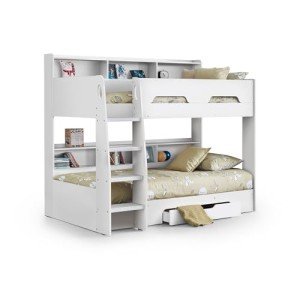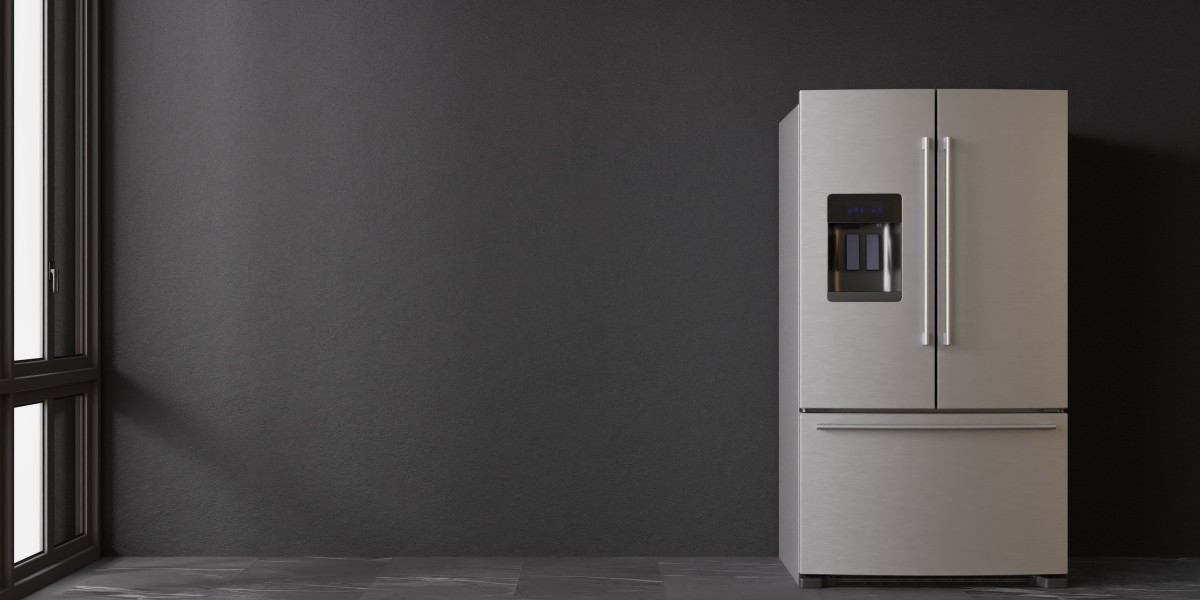Exploring Bunk Beds: A Comprehensive Guide
Bunk beds have actually long been a staple in kids's bedrooms, dorms, and even homes with restricted space. Not only do they supply a practical sleeping service, but they likewise develop an enjoyable and creative environment for children and a great space-saver for adults and households. This short article will explore whatever you require to understand about bunk beds, from types and products to security suggestions and purchasing recommendations.
Table of Contents
- Types of Bunk Beds
- Traditional bunk beds uk Beds
- Loft Beds
- Triple Bunk Beds
- L-Shaped Bunk Beds
- Product Options
- Wood
- Metal
- Safety Considerations
- Buying Guide
- Frequently asked questions
Types of Bunk Beds
Bunk beds can be found in numerous styles to match different needs and preferences. Here's a breakdown of the most typical types:
Conventional Bunk Beds
Standard bunks generally include 2 beds stacked vertically sale on bunk beds top of one another. These beds are ideal for siblings sharing a room or for maximizing sleeping space in guest spaces.
Loft Beds
Loft beds stand likewise to standard bunk beds but do not have a lower sleeping area. Rather, they typically include a desk or seating location beneath, making them a great option for little spaces needing multifunctionality.
Triple Bunk Beds
Triple bunk beds are created for 3 occupants, with beds stacked in a three-tier configuration. These are less common but can be an enjoyable option for big families or sleepovers.
L-Shaped Bunk Beds
With one bed placed horizontally and the other vertically, L-shaped bunk beds are typically equipped with extra features such as desks or storage drawers and can complement corner areas in a space.
Contrast of Bunk Bed Types
| Bed Type | Ideal Use | Description |
|---|---|---|
| Traditional | Shared bedrooms or guest spaces | Two beds stacked vertically |
| Loft | Small rooms requiring multi-purpose Space saving bunk beds | Upper bed with open space underneath |
| Triple | Big households or sleepovers | 3 beds stacked vertically |
| L-Shaped | Corner or versatile areas | A combination of vertical and horizontal beds |
Material Options
Bunk beds are manufactured from different materials, with wood and metal being the most typical. Each material has its benefits and drawbacks.
Wood
- Resilience: Generally robust and can hold up against years of use.
- Aesthetic Appeal: Offers a traditional appearance that can mix with different designs.
- Weight Capacity: Typically tougher; can support heavier weights.
- Downsides: May be more expensive than metal options and can be prone to scratches.
Metal
- Toughness: Generally light-weight and easy to move but still strong.
- Modern Design: Often is available in smooth designs, making it appealing for contemporary spaces.
- Affordable: Usually cheaper than wood alternatives.
- Drawbacks: Can be cold to the touch in winter seasons and might not have the same visual appeal for some purchasers.
Security Considerations
When it pertains to bunk beds, safety can not be ignored. Here are essential safety pointers to remember:
- Guardrails: Ensure that the leading bunk has guardrails on both sides to avoid falls.
- Tough Construction: Check for a strong develop and sturdy products to hold up against weight and motion.
- Weight Limit: Adhere to the manufacturer's weight limit for both the upper and lower bunks.
- Ladder Design: Choose bunks with a safe, easy-to-climb ladder and prevent any sharp edges or rungs.
- Age Restrictions: Most producers suggest that children under the age of six must not sleep in the upper bunk.
Purchasing Guide
When searching for bunk beds, consider the list below factors to find the very best fit for your needs:
- Space Availability: Measure the room size and ceiling height, guaranteeing there is appropriate space for the leading bunk.
- Bed Size: Decide in between twin, full, or bigger sizes based on your requirements and the size of the room.
- Design Preference: Consider the overall decor of the bedroom to find an appropriate style.
- Ease of Setup: Look for a bunk bed that is simple to assemble.
- Spending plan: Bunk beds come in numerous rate varieties, so identify a budget before starting your search.
FAQs
1. What is the suggested age for children to sleep on the top bunk?
Kids aged 6 and older are typically advised to sleep on the top bunk to reduce the danger of falls.
2. How can I make my bunk bed safer?
To enhance safety, guarantee guardrails are properly installed and check that the bed is put on a flat surface area. Furthermore, encourage children to use the ladder thoroughly.
3. Can I transform a bunk bed into 2 different beds?
Lots of bunk bed sale beds are created to be convertible. Check the maker's specs for convertibility features.
4. What accessories are offered for bunk beds?
Common devices include beddings, storage drawers, staircases instead of ladders, and tented canopies for an enjoyable visual appeal.
5. How do I maintain my bunk bed?
Routine checks for loose screws or structural integrity can help ensure safety. Dust the bed frequently and clean spills promptly to keep the products in good condition.
Bunk beds are versatile and a space-efficient service for numerous living scenarios, from kids's rooms to visitor accommodations. With lots of designs and products available, possible purchasers have a wealth of alternatives to think about, making sure a mix of practicality and looks. By prioritizing safety and following the pointers detailed in this guide, people can discover the best bunk bed that matches their space and lifestyle, all while creating an enjoyable sleeping environment.









